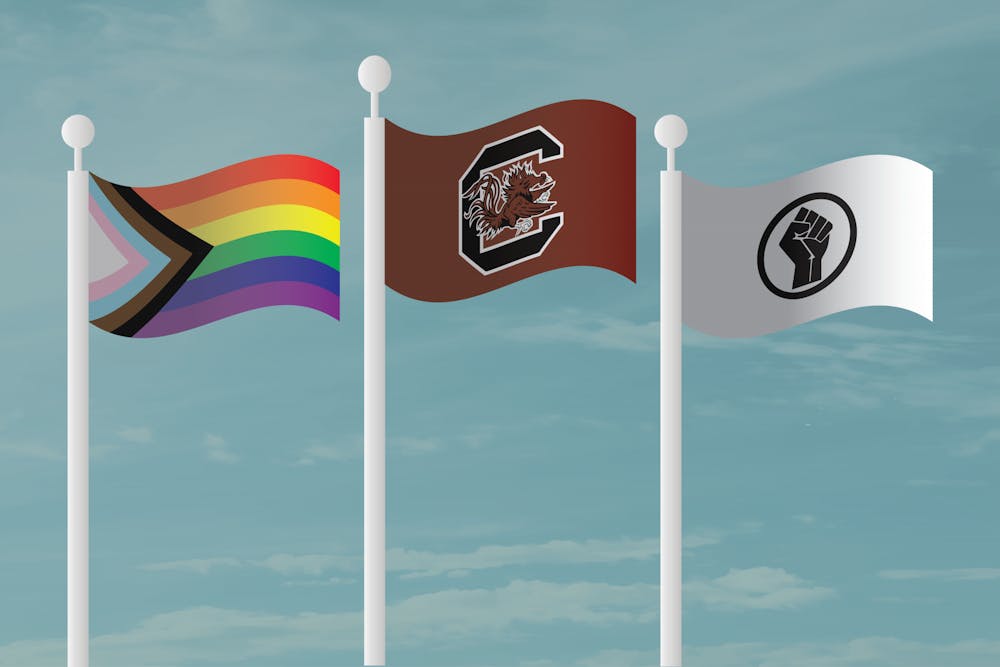We must acknowledge the positive impact of changes the USC community made in the past four years, like the increase in activism and inclusive student orgs, as well as inclusive housing and identifying information updates. These changes are important in making campus a more inclusive place for all students.
Our campus is filled with organizations and groups focused on supporting, educating and aiding in all aspects of diversity and development.
One of these organizations is the Association of African American Students, also known as AAAS.
Its focus is to provide a safe space for students and educate them on the social and political issues that affect African American students. Students value this club because of its history for providing a supportive space for African American individuals on campus.
“That sense of community and feeling like they are seen and represented is why AAAS has been so successful in the past," Jada Hudson, membership chair for AAAS, said.
Associations like these are important to students coming from places with less diverse populations, according to Hudson.
“Before coming to college, I hadn't seen this many Black people in positions of leadership until joining AAAS,” Hudson said.
This group has kept its significance at USC since its founding in 1968. Even as a longstanding organization, AAAS is still applying new pursuits to draw in more members.
Hip Hop Wednesday on Greene Street is one of the recent outreach endeavors that is used to bring more awareness to AAAS as an organization and attract students to various other organizations based in multiculturalism.
A push for more education about the subject of diversity on campus has prompted more participation in multicultural workshops at USC.
The Office of Multicultural Student Affairs hosts a variety of informative events and workshops for both students and faculty. It provides educational opportunities that discuss diversity within race and ethnicity, as well as LGBTQIA+ education and support. These resources are valuable to anyone wanting to become more involved in these subjects in the future.
“When students do sign up for presentations or workshops and decide to engage with the office, nowadays, I see those as the students who are really genuinely interested in dismantling different criticisms and barriers that we have,” Kimberly Seibles, associate director of Diversity and Social Justice Education, said.
There was an increase in attendance by students and faculty at these workshops after the events of the summer of 2020 and various social injustice movements, according to Seibles.
This change is representative of an increased interest in supporting marginalized communities, both on and off campus. These individuals are becoming active in promoting progressive action and making this campus safer and more inclusive to future classes at USC.
A change in policies on campus also show a positive shift in the treatment of LGBTQIA+ students.
Options to update your name and pronoun information within the university systems and a safe zone ally program for students and faculty are some of the new programs available to those within the LGBTQIA+ community and allies.
“These wonderful things that we've been able to implement have taken a lot of time and a lot of buy-in from a lot of people,” Caroline Wallace, assistant director of LGBT Education, said.
These changes have helped many on campus. One other example is the gender inclusive housing that was introduced last year. This program gives students with various gender identities and sexual orientations the opportunity to live on campus in an affirming space. It has become a popular option for students living on campus — with an increasing number signing up for it — according to Wallace.
Certainly, the changes occurring on campus have taken longer than desired. But there are hopes that future improvements come quicker now that they have the ball rolling.
"We have made progress, but ... when I think of where we're going, I hope that in five years, we're not looking back at things we did five years ago and saying, 'okay, now is the time,'" Wallace said.
These changes have positively impacted students and show that there will be more opportunity for more progress in the coming future.

